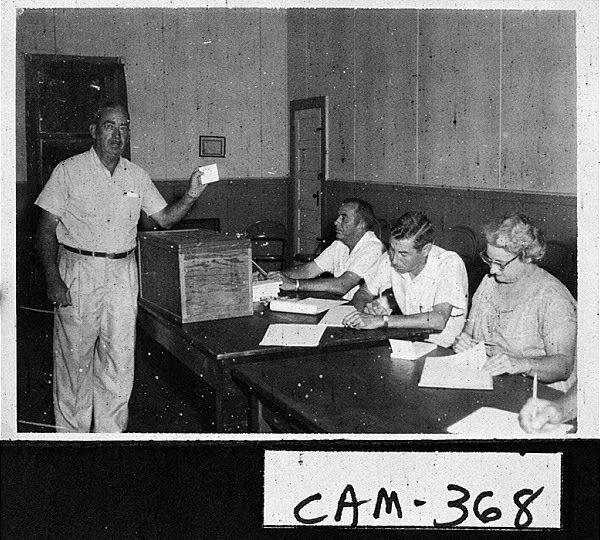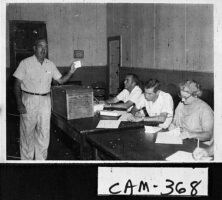Chief Justice Earl Warren once said that the most important judicial rulings of his tenure were not the momentous school-desegregation decisions, but the U.S. Supreme Court rulings that compelled states to reconfigure their electoral processes according to the principle of “one person, one vote.” In Baker v. Carr (1962), a major case from Tennessee, the Supreme Court held that challenges to the formation of voting districts could be brought to federal court under the Equal Protection Clause, despite earlier suggestions that the judiciary should not have a say in their formation.
The next Supreme Court decision on the merit of reapportionment suits came when James Sanders, a voter in Fulton County, challenged the application of Georgia’s county unit voting system in elections for governor, U.S. senator, and other officeholders chosen on a statewide basis. The problem with the county unit system, according to Sanders, was that it gave residents of small counties far more voting power than residents of more populous counties. Indeed, the imbalance was so great that rural counties that were home to only one-third of Georgia’s population held a majority of county unit votes in statewide elections. James H. Gray, the chair of the State Executive Committee of the Democratic Party, was among the named defendants because the suit focused on party-run primary elections, which at that time determined the selection of the state’s officeholders.
In the words of Justice William Douglas, by striking down the unfair voting scheme through the Equal Protection Clause of the Fourteenth Amendment, the Court insisted that the American “conception of political equality . . . can mean only one thing—one person, one vote.”






